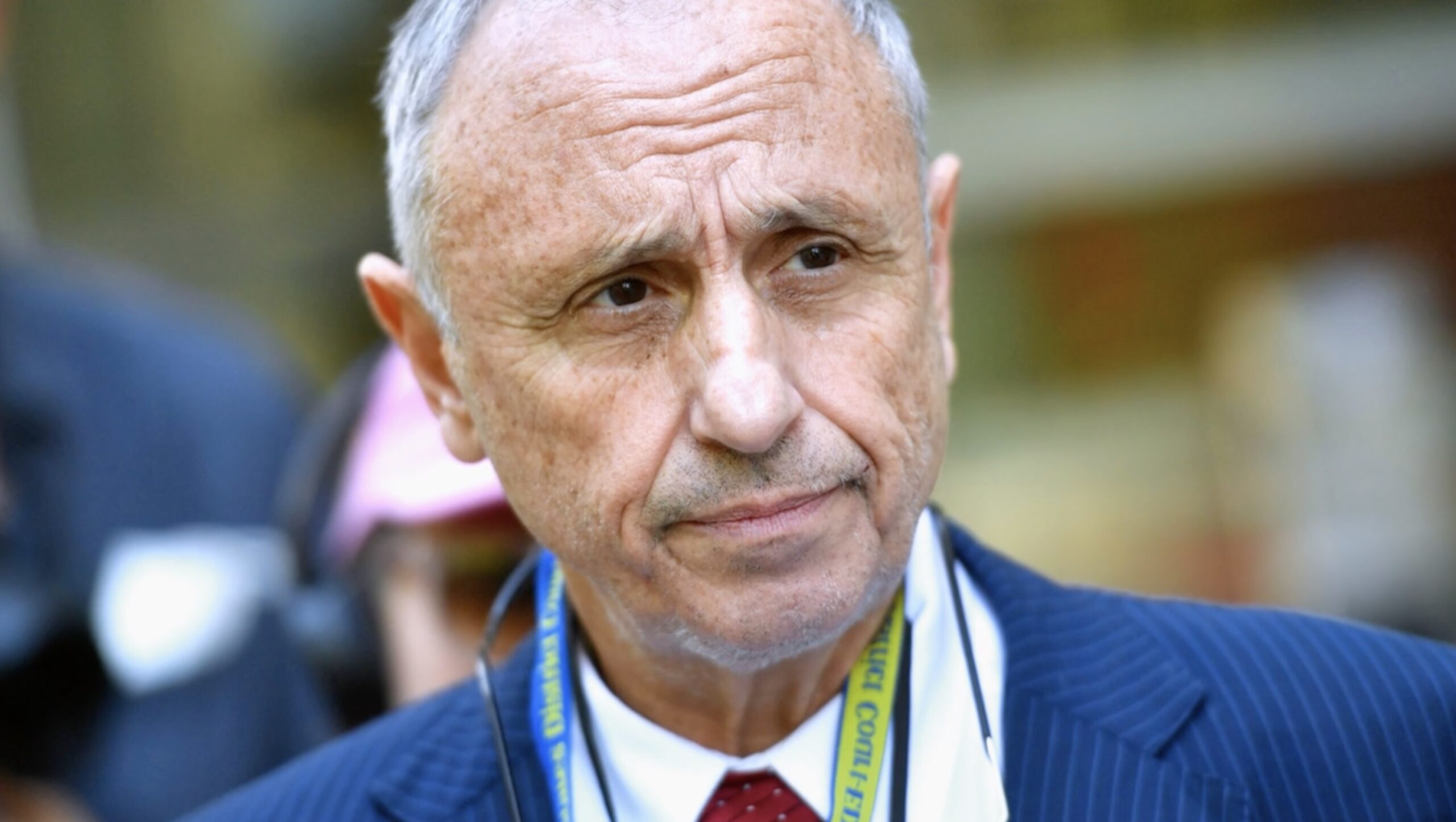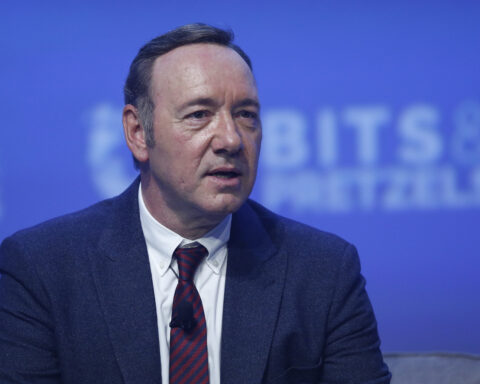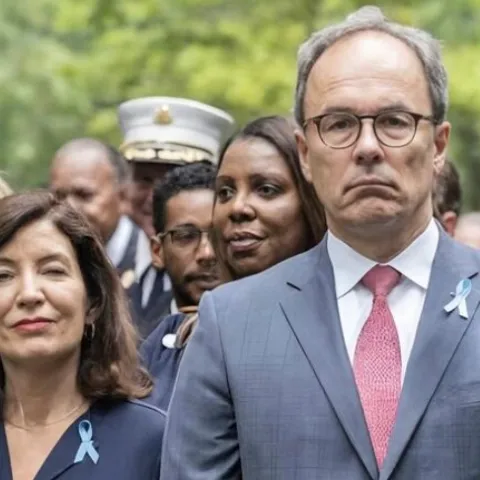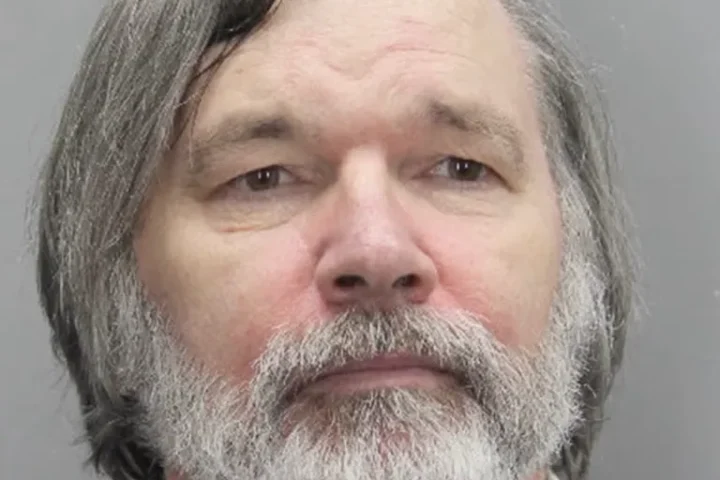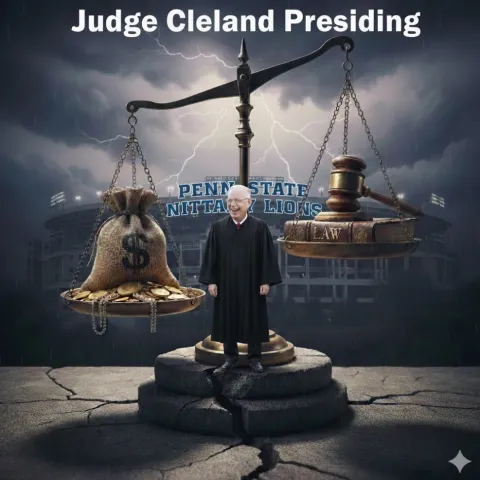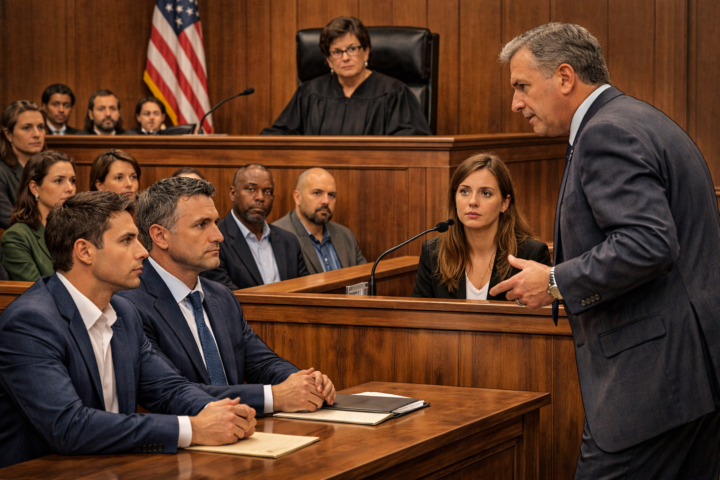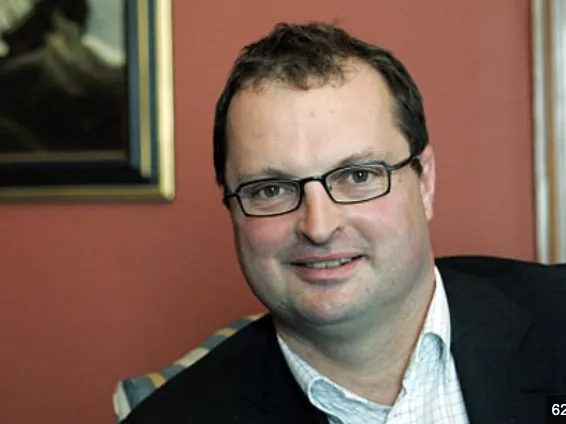By Frank Parlato
On January 17, federal prosecutors charged former Oakland Mayor Sheng Thao in a public corruption case, alleging she conspired with her boyfriend, Andre Jones, and recycling executives David and Andy Duong to accept $170,000 in bribes in exchange for political favors.
The indictment charges bribery, conspiracy, wire and mail fraud and aiding and abetting. If convicted on all counts the defendants face up to 90 years.
According to the indictment, the alleged scheme was orchestrated by an unindicted co-conspirator, Mario Roberto Juarez—a businessman with a history of financial and legal problems. Despite being named more than 70 times in the indictment as the initiator, planner, and principal negotiator of the alleged scheme, Juarez was not charged. The Department of Justice granted him immunity in exchange for his cooperation.

Indictment Alleges Bribes for Housing Contracts, Recycling Deal, and Port Access
The indictment alleges that, in exchange for the $170,000 bribe, former Mayor Thao promised to use her office to benefit the Duongs, including arranging for the city to purchase housing units—part of a homeless shelter venture involving the Duongs and Juarez—and extending the city’s recycling contract with the Duongs’ company, California Waste Solutions.
California Waste Solutions currently services more than 1.4 million homes across Oakland and San Jose. Its CEO, David Duong—nicknamed “The Trash King”—also owns Vietnam’s largest recycling facility.
Prosecutors further claim Thao agreed to help secure a land deal at the Port of Oakland for the Duong family’s operations there.
Prosecutors Trace Alleged Bribes Through Campaign Mailers and No-Show Job
According to the indictment, the Duong family allegedly funneled $75,000 into political mailers targeting Sheng Thao’s opponents during her 2022 campaign. Prosecutors describe this as the first installment of the bribery scheme.
After Thao’s election, the indictment claims the Duongs—working with Juarez—paid Thao’s longtime partner, Andre Jones, $95,000 for a job that required no actual work.
The investigation involved the FBI, IRS Criminal Investigation, U.S. Postal Inspection Service, the DOJ’s Public Integrity Section, and the U.S. Attorney’s Office for the Northern District of California.
No Record of Benefits to Alleged Bribe Payers
Although the indictment accuses former Mayor Thao of accepting $170,000 in bribes, it does not allege she delivered any financial benefit to those who allegedly paid her—David and Andy Duong and Juarez.
A review of Oakland’s expenditures for 2023–2024, shows that the City did not purchase housing units from the Duongs, Juarez, or any related entity. The City also did not extend California Waste Solutions’ recycling contract. That contract, awarded in 2014—eight years before Thao became mayor—remains unchanged and is scheduled to run through 2034.
Nor, according to public documents, did Thao secure any new land deal for the Duong family at the Port of Oakland.
Could the Mayor Fulfill the Alleged Bribe?
Under the Oakland City Charter, the mayor cannot award contracts, extend existing ones, or make purchases on behalf of the city. Those powers rest exclusively with the eight-member City Council, which must act by majority vote. The mayor has no vote—even in the event of a tie.
Contracts must also comply with municipal procurement rules, including competitive bidding processes. The Council cannot legally select a preferred vendor or developer. Any contract for housing or city services must go through an open and public process.
This raises a threshold question: Could the mayor have delivered on the alleged bribe, even if she had intended to? The indictment appears to rely on a theory—in which three individuals, including a seasoned businessman, allegedly paid a public official for actions she had no legal authority to perform and, ultimately did not perform.

FBI Raids and Recall Preceded Federal Indictment by Two Months
The federal investigation became public in June 2024, when the FBI executed search warrants at the homes of Mayor Thao, David and Andy Duong, and at the offices of their recycling company. The raids occurred just days after a recall petition against Thao qualified for the ballot.
The raids were widely covered in the media and eroded Thao’s political support. In November 2024, Oakland voters removed her from office in a special recall election.

Bribery Allegation Rests on Juarez
Prosecutors allege that on or around October 7, 2022—just weeks before the mayoral election—Juarez met with Sheng Thao and proposed a bribery arrangement. The indictment does not cite any recording, witness, written communication, or physical evidence to corroborate the meeting. The allegation rests on Juarez’s word.

From there, the indictment outlines Juarez’s alleged role in the scheme, quoting from text messages he purportedly sent to David and Andy Duong where Juarez basically incriminates himself by strangely outlining his crimes in texts.
In one exchange, Jaurez references a payment of money to the mayor, to which Andy Duong replies: “What money?” In other messages, Andy responds to Juarez’s proposals with skepticism, asking: “Guaranteed?” and “Are you sure?”
According to the indictment, Juarez handled the whole scheme:
- Met with Thao before the election to initiate the scheme.
- Negotiated with Andy Duong to finalize the terms.
- Orchestrated attack mailers targeting Thao’s opponents.
- Directed $95,000 in payments to Thao’s partner, Andre Jones, which prosecutors allege were disguised as legitimate business expenses.

strange Questions if Everyone Was in on It
Indictment Attributes Payment to Duong—Records Show Juarez Wrote a Bounced Check
The indictment alleges that David Duong paid $75,000 before the 2022 election to fund political attack mailers supporting Thao’s mayoral campaign. This was the initial payment of the bribe – prosecutors allege. The point where the crime started.
Public records from a separate criminal case—People v. Mario Juarez, filed by the Alameda County District Attorney—reveal that the federal indictment is wrong. The Duongs never paid for the mailers.
According to court filings, the mailers were produced and distributed by Butterfly Direct Marketing. The vendor fronted the cost of printing and postage based on assurances from Juarez, who designed the mailers and selected the target audience. Juarez later issued a $53,000 check to cover the bill—but the check bounced.
Before writing the check, Juarez transferred more than $30,000 out of his business account and into an account he shared with his teenage daughter— labeled as her high school account—leaving only $200 behind.
David Duong never paid for mailers. The federal indictment does not mention the bounced check, the vendor’s unpaid invoice, or Juarez’s diversion of funds to his daughter’s account.
By the time Juarez began cooperating with the FBI, he had already been charged in People v. Juarez with felony bad check fraud. Juarez did not deny writing the bad checks but instead accused District Attorney Pamela Price of political retaliation, claiming the charges were brought because he had not contributed to her campaign.
The indictment’s claim that David Duong paid $75,000 for the mailers is incorrect, and the government misrepresented a central fact in its bribery theory—namely, that Duong delivered the first half of the alleged bribe.



he Sent Thirty Grand to His Kids School Account and Left Two Hundred Bucks Behind Like a Middle Finger
Government Alleges $95,000 No-Show Job; Records Show Contract and Commission Draw
The federal indictment alleges that Juarez and David Duong paid $95,000 to Mayor Thao’s boyfriend, Andre Jones, as the second part of the bribery payment. Prosecutors characterize the arrangement as a “no-show job” connected to the mayor’s alleged promise to buy housing units.
According to the indictment, Juarez paid Jones $25,000, while Duong paid $70,000. Juarez referred to his payment as a “loan” in a text message cited by prosecutors.
Duong’s payment, however, was made pursuant to a written contract. That contract did not offer Jones employment or a salary but established a commission-based sales agreement. The $70,000 payment was structured as an advance on potential commissions. The contract did not impose any specific job duties but required Jones to make best efforts to sell housing units.
Jones never completed a sale. However, according to reports, he, Juarez, and Andy Duong explored municipal markets beyond Oakland, attempting to promote what was described as a “low-cost solution to the homeless problem.”
Prosecutors Cite Rent Splits and Phone Bill to Show Thao Benefitted
To support the allegation that the $95,000 paid to Jones constituted a bribe that benefitted Mayor Thao, the indictment details the couple’s rent and utility arrangements.
According to the indictment:
- From December 2021 to April 2022, Thao paid the couple’s rent in full.
- From May to December 2022, the two split rent evenly.
- Beginning in January 2023—after Jones began receiving payments from Juarez and Duong—Jones paid the full rent for their shared residence through at least June 2024.
The implication is that Jones’s financial support during this period indirectly benefited Thao. However, based on the couple’s previous rent-sharing pattern, Jones may have been covering his own share, including repayment for earlier periods when Thao paid more.
The indictment also notes that Jones paid for the couple’s shared utility bills, including a joint mobile phone plan. The alleged personal benefit to Thao may ultimately rest on her partner’s payment of her phone bill—using funds prosecutors say originated from a bribe.


it Wasnt a Mansion It Wasnt Chanel It Was a Bill There is No Accusation of Luxury Excess or Personal Indulgence Only Utilities
and Yet from This Domestic Arrangement a Case is Made
No Benefit Delivered—But Under Federal Law, Agreement May Be Enough
Although the indictment does not allege any official act was carried out, or that any payment resulted in any tangible benefit, federal bribery law does not require completion of the promised act. It is sufficient for prosecutors to prove an official was given something of value in exchange for her promise of future action.
In this case, the government alleges that payments were offered in exchange for influence over city purchasing decisions, even if those decisions were never made and could not have been legally executed.

Unrecorded Dinner Allegation
According to the indictment, Mayor Thao and Juarez attended a dinner in Berkeley on March 9, 2023. Prosecutors allege that during the meeting, Thao asked for additional bribe money and proposed a new arrangement: that Jones would receive up to $3 million if the City of Oakland agreed to purchase 300 housing units from Juarez and the Duongs.
The indictment claims that Thao suggested invoking the city’s emergency powers to bypass competitive bidding requirements. Under the Oakland City Charter, however, the mayor does not have authority to declare a municipal emergency. That power rests with the City Council and, in practice, requires coordination with the City Administrator. The indictment does not allege that Thao attempted to invoke emergency powers.
The sole source for this account is Juarez. There is no recording, no witness, and no contemporaneous documentation of the meeting.

of Course Theres No Recording No Email No Napkin Doodle Nothing Just Juarez a Man with a Bounced Check and a Full Imagination
and Thats How Crimes Get Born Now Pass the Salt
Recorded Meeting Shows Duong Advocated Legal Process
The federal indictment references a recorded conversation from a November 28, 2023 board meeting of the housing company involved in the alleged bribery scheme. During the meeting, Juarez presses David Duong to confirm that Mayor Sheng Thao had promised to purchase housing units in exchange for payments.
Duong stated that Thao was not ready to proceed with supporting a purchase and was waiting for another municipal entity to purchase and implement the experimental housing units Duong and Juarez were offering as a method to solve the homeless crisis.

Juarez challenged Duong’s statement, insisting it contradicted the supposed corrupt arrangement Thao had made.
Duong disagreed and replied, “The deal is the deal,” emphasizing that any deal needs to be legal and in line with the city’s interests.
He warned Juarez not to expect Thao to break the law: Duong said, referring to Thao and Jaurez’s insistence on her supposed promise: “It’s not because ‘I promise you, so yeah I will go to jail for this.’ You know that. People don’t promise and die because of their promise.”
Duong stated that he had asked Mayor Thao to arrange for the City Administrator to inspect the housing site. According to the recording, Thao agreed. Duong interpreted this as a sign of openness and proper procedure, saying: “That means she has that input. She has control.”
The inspection occurred two months later, but the city declined to move forward with any purchase.

translation Duong Says the Deal Has to Be Legal Like That Matters to the Feds
Juarez’s Cooperation Came Amid Mortgage Fraud, Grand Larceny, and Check Fraud Exposure
When Juarez began cooperating with the FBI, he had already been charged by the Alameda County District Attorney with felony bad check fraud. In addition, he was under investigation for mortgage fraud and grand larceny.
According to an affidavit filed by Alameda County investigator David Bettencourt in support of a search warrant, there was probable cause to believe Juarez had defrauded investors by misrepresenting his assets.
The affidavit states that Juarez pledged the same piece of real estate as collateral to secure loans from two different investors—without disclosing the conflict. He raised $230,000 from Stewart Chen, head of the Oakland Chinatown Improvement Council, using property that had already secured a $3 million loan from Balboa LLC.
When Juarez defaulted on the Balboa loan, the firm foreclosed in December 2022, leaving Chen with no security and no repayment. Jack Cohen, managing partner of Balboa, said Juarez misrepresented the value of the property and his development plans. Cohen’s firm incurred hundreds of thousands of dollars in legal expenses and lost interest payments.
Investigator Bettencourt stated in the affidavit that there was probable cause to believe Juarez falsely claimed to have $400,000 in a bank account when applying for the Balboa loan.

Juarez Allegedly Kept $1 Million, and Threatened Duongs
The Alameda County investigation also examined allegations that Mario Juarez received $1 million from the Duong family to build 50 modular housing units—units that later became the centerpiece of the alleged bribery scheme.
According to project records, Juarez delivered only two completed units. He retained the remaining funds and allegedly failed to pay six workers in Tijuana $33,000 for their labor.
According to police reports, in May 2024, Juarez allegedly arrived at the Duongs’ office with a firearm to pressure them to pay him money to pay workers in Mexico that Jaurez alone had employed and had collected a million dollars to produce 50 units – with 48 undelivered.
According to the Duongs, when they refused, Jaurez claimed to have cartel connections and said associates were “surrounding the building.” Juarez denies making any such threats.
What they were unaware of is that Juarez may not have had cartel connectioins but he had something better. He had FBI connections.

Federal Immunity Shielded Juarez
While under investigation by Alameda County for alleged mortgage fraud and grand larceny, Mario Juarez informed federal agents that he had participated in a bribery scheme involving Oakland Mayor Sheng Thao. In exchange for his cooperation, he sought immunity from prosecution.
Federal prosecutors agreed.
To secure his testimony, federal authorities took precedence over Alameda County’s investigation involving allegations of real estate misrepresentation, investor deception, and bad check fraud.
The federal bribery case—targeting Thao, David and Andy Duong, and Andre Jones—moved forward instead.



and Instead of Saying cool Youre Under Arrest the Feds Go we Love That Energy Lets Make a Deal
they Didnt Want Justice They Wanted Headlines and Juarez Delivered
Dismissed Fraud Case Was 31 Times Larger Than Bribery Scheme
Victims of Mario Juarez’s alleged mortgage fraud expressed frustration over the dismissal of criminal charges against him, arguing that it extinguished any chance of recovering their losses through restitution or court supervision.
The federal indictment against Oakland Mayor Sheng Thao alleged a $170,000 bribery scheme. By contrast, the mortgage fraud case investigated by Alameda County involved more than $5.3 million in allegedly misappropriated funds—more than 31 times the value of the bribe at the center of the federal prosecution.
Despite the significantly larger financial impact and multiple victims associated with the mortgage fraud case, federal prosecutors opted not to charge Juarez and rely on him as their key witness instead.
One month after the federal indictment was announced, Alameda County dropped its charges against Juarez.
The decision shielded Juarez from prosecution for the far larger alleged offense to prioritize a case built almost entirely on his cooperation.

Federal Case Casts Shadow on David Duong
Beyond ending the political career of Sheng Thao, the federal indictment has cast a shadow over businessman David Duong—whose story reflects decades of entrepreneurial effort and civic involvement.
Duong fled Vietnam in 1975 following the fall of Saigon and arrived in San Francisco with 16 family members. They lived together in two studio apartments. At 19, Duong began collecting cardboard at night to support the family. That job laid the foundation for what would become California Waste Solutions, founded in West Oakland and eventually employing more than 300 people. In 2006, Duong expanded his business internationally, investing $150 million to establish Vietnam Waste Solutions, now the country’s largest waste treatment company.
His civic contributions include appointments by President Barack Obama to the Vietnam Education Foundation, and roles on Oakland’s Waste Reduction and Recycling Commission, the International Trade Commission, and as chair of the Vietnamese American Business Association.

now Theyve Got His Name in Some Paper Next to the Words bribery and indictment a Man Who Treated Waste Better Than the Government Treats Justice
Jurors May Weigh Duong Against Juarez for Credibility
As federal prosecutors prepare to bring their bribery case to trial, they may find themselves confronting David Duong’s rags-to-riches story—and Mario Juarez’s history of legal conflicts.
Juarez’s record includes a personal bankruptcy, a revoked real estate license, multiple failed business ventures, and several unsuccessful runs for public office. He has faced domestic violence allegations that resulted in custody restrictions, and has been sued numerous times, including by the City of Oakland.
In one criminal matter, Juarez was charged with grand theft for allegedly misappropriating funds while acting as an intermediary between a landlord and tenant. He claimed drug addiction and was offered a diversionary program to spare jail time.
In a 2012, two former business partners claimed Juarez failed to repay $230,000 they had invested in a biodiesel facility and a sports bar. Both projects turned out to be fraudulent.
Juarez was also accused of threatening his creditor, Stewart Chen who claimed that Juarez threatened him with violence and actually confronted his wife by surprise and falsely told her that Chen was associating with prostitutes.
In a widely reported incident, Juarez claimed he was subjected to a gunfire attack and he responded with gunfire. Police reports indicate that Jaurez may have initiated the incident. No arrests were made.
Juarez Declares Himself Vindicated, Victim Says Justice Was Traded for Testimony
Federal prosecutors may seek to present Mario Juarez as a credible witness, in part by highlighting the resolution of the felony bad check charges filed against him in Alameda County. After those charges were dismissed, Juarez issued a public statement casting himself in triumphant terms:
“It is a victory for truth, fairness, and the resilience of the human spirit against corruption and abuse of power.”
Samari Johnson, owner of Butterfly Direct Marketing, the alleged victim in the bad check case, did not see it that way. In a letter to Alameda County Judge Scott Patton, Johnson pleaded with the court not to dismiss the case.
“This case is of significant importance to me and my small business,” he wrote, “and dismissing the case would allow a criminal to avoid accountability for his actions.”
Nevertheless, the case was dismissed—reportedly to preserve Juarez’s value as a federal witness in the bribery prosecution of Mayor Thao and businessman David Duong.
Johnson told reporters that his business continues to suffer because of Juarez’s conduct. Johnson also alleged that Juarez made violent threats against him and that he filed a police report in response.
“We don’t think Mario Juarez should just get off,” Johnson said. “Everyone should be in trouble for the crimes they’ve done.”
Federal investigators, however, chose otherwise. In the end, prosecutors secured their case—by making a deal with the man who broke the laws they claimed to uphold. And so the curtain fell: not on the fraudster, but on the people he ruined.

Coming Next: We examine the text messages of Mario Juarez—including messages where he refers to assisting Thao’s campaign in the future, despite the messages being dated six months after her election.


